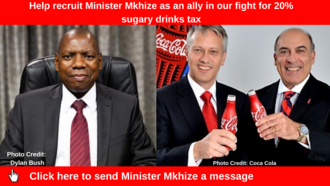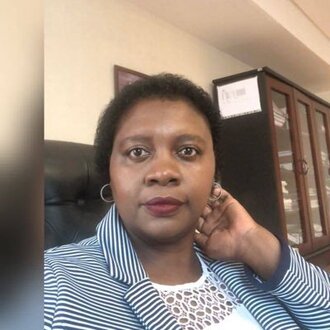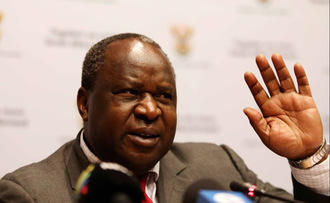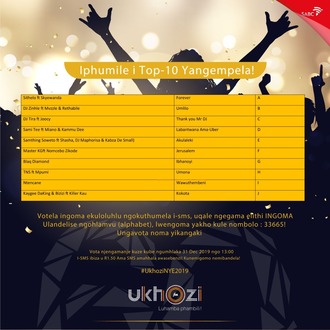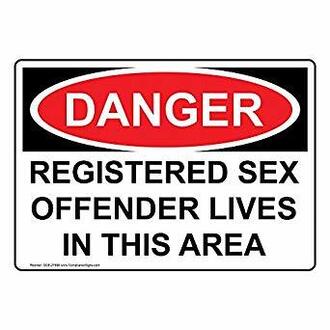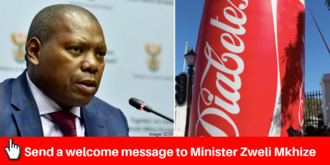- Featured
- Clean air
- Climate justice
- Consumer Rights
- Corporate Accountability
- Data access
- Early Childhood Development
- Economic fairness
- Education
- Electoral fairness
- Environmental justice
- Food justice
- Gender based violence
- Grants/social assistance
- Health
- Housing and infrastructure
- Industry interference
- Land Justice
- LGBTQIA+ rights
- Media/ information access
- Public transport
- Racism
- Reparations
- Safety
- Sanitation
- Service Delivery
- Sexual and Reproductive Rights
- Social justice
- Unemployment
- Womxn's rights/ gender equality
- Workers' rights
- More
-
Cheap rent for the rich? Object to the Rondebosch Golf Course leaseCape Town is the most spatially divided city in the country - it is still separated along race and class lines. The City has consistently blamed this spatial injustice on the lack of well-located land that could be used for affordable housing. But the City often misses the most obvious solution: It already owns massive pieces of land in well-located areas. Land that is unused or not being used to its full potential, that could provide ample space for affordable housing and reverse the City’s apartheid legacy. Last year, Ndifuna Ukwazi released a research report exposing how the City is disposing of the public land it owns by leasing it to private organisations at massively discounted rentals [3]. This land includes parking lots that are empty for up to 18 hours a day, bowling greens with very few members, and massive golf courses that provide enjoyment to only a few wealthy residents on the weekends. This is an inefficient, exclusive and unsustainable way to deal with well-located public land. Surely this land should be put to better use? If we are serious about addressing Cape Town’s apartheid legacy, we need to make our voices heard. Object to the lease renewal of 45,99 hectares of prime public land that should be used for affordable housing before 9 March 2020. The experts at Ndifuna Ukwazi have put together this progressive submission you can use when sending in your own objection. If enough of us send in our objections we can stop the City of Cape Town from renewing the Rondebosch Golf Club lease. [1] Cape Town’s course of injustice: Subsidising the rich to exclude the poor, Michael Clark for the Daily Maverick January 28 2020 [2] https://rondeboschgolfclub.com/membership [3] Ndifuna Ukwazi: Cape Town’s failure to redistribute land https://drive.google.com/file/d/1Pxly1G47qbC79l58Oss4vKvvK4AO71M-/view1,247 of 2,000 SignaturesCreated by Ndifuna Ukwazi

-
Help recruit Minister Mkhize as an ally in our fight for 20% sugary drinks taxLast year, when Dr Zweli Mkhize was appointed as our new Minister of Health, we ran a welcome campaign to help ensure the fight against non-communicable diseases (NCDs) was high on his agenda. Late last year Minister Mkhize attended a Diabetes awareness event where he was asked if he supports the World Health Organisation’s recommended 20% sugary drinks tax. His spokesperson Dr Lwazi Manzi responded stating that Minister Mkhize supports the principle of the sugary drinks tax. Dr Manzi said that: “The minister cannot proclaim on the actual number as that is the business of Treasury [but] he supports the principle of the sugar tax,” [1]. So what does this mean for our campaign? The good news is that the minister has not only acknowledged that diabetes needs to be priority, but he has also stated that reducing sugar in drinks and consumable foods is important. This sends a message that the minister of health could be an ally. We need all the allies we can find because we are up against greedy companies like Coca Cola who want to protect their profits and are fighting against the sugary drinks tax. Minister Mkhize may do more to support a stronger sugary drinks tax if we show him that there is enough public support. If enough of us come together and send messages of support, it could help convince him to use his position as a member of Cabinet to call on Treasury to increase the sugary drinks tax to 20%. With Finance Minister Tito Mboweni preparing to deliver his Budget Speech on the 26th of February, we have a window of opportunity to recruit Health Minister Mkhize to convince Treasury to put our nation's health first. In the words of the Health Minister, “Every South African has been affected by diabetes- whether directly or indirectly. For those who have experienced or witnessed the complications of this deadly disease, it can be devastating and disruptive for families and communities.” [2] Let’s make sure Minister Mkhize knows that if he’s serious about fighting NCDs, he will have to implement a stronger sugary drinks tax. [1] https://health-e.org.za/2019/11/19/health-minister-supports-the-reduction-of-sugar-in-sweetened-beverages/ [2] https://health-e.org.za/2019/11/14/world-diabetes-day-2019/71 of 100 SignaturesCreated by Khaliel Moses
-
Tell Thembeni Mhlongo to build a public creche in Windsor WestIt is unrealistic to expect that community members in poor and low income areas will be able to provide suitable crèche’s in line with the requirements of the Department. The particular requirements in infrastructure, safety regulations, health standards, teacher qualifications, and high standards of education and as well as capacitated organisations are an unrealistic expectation for these communities. This was echoed by the words of crèche principal, Georginah Hloka in a meeting held on the 29th of October 2019 with the Department of Social Development, Department of Health and the Department of Education in Tembisa Township [1]. How can crèche owners then provide adequate toilets, proper infrastructure, provisions for disabled children, nutritious food, qualified teachers, physical safety features and adequate space for children if community members cannot even afford to pay a R1000?This then means that the whole idea of private crèche’s can never really work in poor and low income communities [2]. Research shows that the improvement of pre-school learning in the country came when grade R learners were incorporated into the public school system and became housed in primary schools [3]. Grade R is however only for five year olds and six year olds. This means that, for poorer communities, provision of pre-school education by the public government is better than that of private providers. The same is not true for affluent neighbourhoods however. This is why we are calling for the Gauteng’s Head of the department of social development to rather build public crèche’s as private crèche’s are not sustainable in poorer areas. What is moreover disturbing about the poor quality of pre-school education for black children is that the children who of the race group that needs the most support in order to reduce rates of inequality in the future as they are shaped by race and gender, are the children whose development is being stunted all the more. Research shows that poor nutrition, poor learning environment and low standards of teaching are the main cause of why children from poor backgrounds generally perform worse than children from upper and middle classes[4]. The DSD MEC needs to stop this plight and push for decision making to rather build public crèche’s as opposed to trying to shift the responsibility of educating the poor to community members who are structurally unable to play this role. [1] Township crèches must now register, says government: https://www.sowetanlive.co.za/news/south-africa/2019-10-29-township-crches-must-now-register-says-government/ [2] Raising South Africa: informal crèches are desperate for aid: https://www.groundup.org.za/article/raising-south-africa-informal-creches-are-desperate-aid/ [3] impact of the introduction of grade R on learning outcomes: http://resep.sun.ac.za/wp-content/uploads/2014/06/Grade-R-Evaluation-1-3-25-Final-Unpublished-Report-13-06-17.pdf [4] Challenges of the Early Development Sector in South Africa by Michaela Ashley Cooper, Eric Atmore and Lauren Van Niekerk 2012. The Journal of Early Childhood Development Journal. The University of Johannesburg.164 of 200 SignaturesCreated by Zintle Tyuku
-
Tell Finance Minister to fully fund the IPIDMany women in South Africa have been victims of rape, murder and robbery by the hands that are meant to protect them, and not enough is being actively done to protect them. [3] To restore trust between the police and women, The IPID must be fully independent of SAPS. It’s the IPID’s duty to be ‘watchdogs’ over unlawful acts by the police. But they’ve failed to do this possibly because of the level of dependence on SAPS. To this day, not one police officer has been arrested for shooting at the Marikana miners. The Farlam Commision of Inquiry revealed nothing but poor leadership from the Saps, resulting in lives lost and no justice served.[4] The Finance Minister is currently working on his budget speech for February, there is no better time to act. We have a chance to ensure IPID is fully independent. If we don’t act now, we may have to wait another year for the next budget. References: [1] http://www.ipid.gov.za/sites/default/files/documents/121764%20IPID%20Annual%20Report%20FULL.pdf [2] https://joburgeastexpress.co.za/38927/ipid-how-to-report-a-case-against-officers/ [3] https://citizen.co.za/news/1572102/woman-raped-by-two-men-in-jmpd-uniform/ [4] https://www.dailymaverick.co.za/article/2019-08-16-sa-still-waiting-for-action-on-farlam-commission-findings/93 of 100 SignaturesCreated by Destiny Manda
-
Add your name to assist Wits students owing more than R20 000 to registerLungelo Malevu, holding a BSc in Biological Sciences is one of many from Wits University who currently have historical debt “I owe R135 893.28 and the university has withheld my degree and I only have access to my unofficial transcript. This is a challenge because I cannot apply for a number of jobs since there is no proof that I have completed my degree” Portia Mosime, hoping to register for her final year in Psychology “my mother is unemployed but we survive through the money she makes from her vegetable garden which supplies her community with fresh veggies, however she makes less than R500 a month this is not enough to cover the outstanding debt at Wits amounting to R76 117.81” Students often financially excluded from institutions of higher learning are black female students from previously disadvantaged backgrounds. They account for close to 58% in universities and 57% in TVET colleges [4]. The lack of access to funding opportunities for higher learning affects them the most. Following the efforts made by the SRC and other important organizations, these testimonies should motivate people to add their names to this campaign to put more pressure on the financial committee (FinCo) as they are the ones responsible for determining the fees to be paid by students. Ultimately this should end the unequal access to institutions of higher learning affecting poor black South African youth. The efforts by NSFAS and other funding schemes can only assist a certain number of students, this further reduces the rate at which graduates enter the job market. Despite unemployment rates being high, the critical work of doctors and nurses requires a surplus of recent graduates based on the demands of the job. If a medical degree student fails to clear their historic debt they cannot graduate and enter the job market, potentially changing people’s lives. These dreams end up not being a reality. Therefore, the more support this campaign gains, the fight against academic exclusion due to finances is kept alive, students around this time are in distress and often end up further getting themselves into more debt and stress way before the academic year starts. Adding your name to this campaign at this moment ensures that the relevant decision makers can act now and implement these demands before the month comes to an end. This means that students with historic debt can continue with their studies. References [1] Wits Vuvuzela, 2019 Accessed here: https://www.wits.ac.za/registration/returning-undergraduate-students/ [2] Takalani Sioga for the Wits Vuvuzela. 3 August 2018. Accessed here: https://www.witsvuvuzela.com/2018/08/03/nsfas-tells-2019-applicants-to-wait/ [3] Michael Pedro for EWN, 2019. Accessed here: https://www.google.com/amp/s//ewn.co.za/2019/03/24/dhet-allocates-r697m-to-nsfas-to-settle-historic-debt-owed-to-universities/amp [4] South African Market. 12 November 2019 Category: Education accessed here: https://www.southafricanmi.com/education-statistics.html346 of 400 SignaturesCreated by Thabisile Miya
-
Demand SABC refunds the top 10 song of the year votersThe SABC started the selection process for "song of the year 2019" and opened voting lines to listeners even though they already knew that they did not have an agreement with the concept owners of "song of the year". The concept owners took the SABC to court to stop this. The Court then instructed the SABC to not air "song of the year 2019", resulting in a loss for all those who had already voted. It is false advertising and unfair to those who voted that the SABC has taken their money but did not deliver a song of the year countdown.34 of 100 SignaturesCreated by Nomvula Maneli
-
Make the sex offenders list publicSouth Africa has the highest rates of rape and gender based violence. Women and children are not safe in homes, schools, university campuses, churches, at work - basically everywhere. We need to know who amongst us are convicted sex offenders so that we can protect ourselves There are raging protests all over the country, hashtags. We are tired of talking, this is one action that can help us deal with this scourge head on. The Department of Justice and Constitutional Development has, in terms of Chapter 6 of the Act, implemented the National Register for Sex Offenders on 30th June 2009. The Register contains information of people who have been convicted of sexual offences against children and mentally disabled people. Currently, the Register is not available to the public, only employers can access it. If the Registry's intention is to protect children and mentally disabled people against sex offenders why is it not accessible to the public?50,796 of 75,000 SignaturesCreated by Nelisa Ngqulana
-
Tell our new Health Minister we want a stronger sugary drinks taxIn 2017 thousands of us came together to stop the likes of Coca-Cola trying to stop the sugary drinks tax. While the beverage industry watered down the sugary drinks tax, we won our campaign to get the tax implemented. With a new Health Minister, Dr Zweli Mkhize, we have an opportunity to get his attention and call on him to take strong action against Non-Communicable Diseases through supporting our call to increase the sugary drinks tax to 20%. Let’s get Minister Mkhize’s attention. If enough of us come together and send him welcome messages, it could get the new Minister to make protecting the sugary drinks tax from industry a priority and increase it to 20%. It only takes a minute to send the pre-written message to Minister Mkhize, but if you could add a personal message, our welcome will be even more powerful. Excessive sugar intake causes increased risk of diabetes, liver and kidney damage, heart disease, and some cancers. Tackling Non-Communicable Diseases needs to be a national priority, and increasing the tax on sugary drinks is a first step in addressing this national epidemic. The new Minister of Health, Dr Zweli Mkhize, has a history of doing important life-saving work on HIV in KZN. He could be an important ally if he pledges his support to increase he sugary drinks tax and could help protect it from industry. Send a direct welcome message to Minister Mkhize and make sure he joins us in our fight to make the food we eat healthy. If we flood his mailbox with welcome messages, he’ll have no choice but to prioritise protecting the sugary drinks tax from industry and increase it to 20%. When Coca-Cola tried to stop the Sugary Drinks Tax from happening with dodgy research on job losses and pressuring our elected leaders - we came together and stood against their bullying. From fighting greedy corporations to lobbying MPs to protect the tax- we’ve shown that our people power works. Let’s come together again and make sure the Sugary Drinks Tax is here to stay. [1] Junk food, junk status cause skyrocketing medical costs, Health-e News for The Daily Maverick April 24 201766 of 100 SignaturesCreated by amandla .mobi Member

-
Campaign Victory: Domestic, farm and EPWP workers must be included in the National Minimum WageThese workers pay the same price for bread - and they deserve the same minimum wage! Domestic and farmworkers are some of SA's most vulnerable workers. 95% of domestic workers and 90% of farmworkers are living under the poverty line. Numbering almost 2 million, they are the largest part of South Africa’s working poor. Yet many of them are primary breadwinners for their households. The recent National Minimum Wage Law only reinforces this poverty by giving domestic workers R15/hr, farmworkers R18/hr, and EPWP workers only R11/hr -- while all other workers receive R20/hr. Sign this petition and join the campaign calling on the National Minimum Wage Research Commission and the Minister of Labor and Economic Development, to increase minimum wage for farm, domestic and EPWP workers to the R20/hr. It is time for the National Minimum Wage Law to recognise domestic, farm and EPWP workers as equal to other workers. The domestic and farming industries still treat workers as disposable, casual labor because of the legacies of colonialism and apartheid. Many of these workers have seen little change in their working conditions since 1994. They work behind closed front doors and locked farm gates, hidden from labour inspectors. They often face terrible living conditions, illegal terms of employment, poverty wages and outright physical and sexual abuse. By granting them only a portion of the minimum wage, we further reinforce their status as second-class citizens and informal workers. This allows employers to continue to exploit them, and reinforces the cycle of generational poverty.270 of 300 SignaturesCreated by Amy Tekie
-
Mweli, Make Gender and Sexuality Studies Compulsory in teacher training programsKarabo Mafolo of the Daily Maverick reports that “In a 2016 report, the LGBTI organisation OUT LGBT Well-being, reported that 51% of transgender people had experienced discrimination in their education life.” This year, there was an mass hysteria about the new curriculum introducing “masturbation” as part of the new Life Orientation curriculum for grade 4 according to a misleading article by Prega Govender in The Sunday Times, 12 May 2019. This sparked the conversation on social media platforms where the concern wasn’t necessarily the introduction of sex and gender education but the level of engagement. More concerning however, is that there is currently no steps being taken to ensure that the very educators of the current and new Life Orientation curriculum are being trained to formally and professionally Gender and Sexuality Studies. The Department has previously displayed a strong capacity to retrain teachers when the CAPS curriculum was introduced in 2011. Met with great reluctance from teachers, Bongani Nkosi of The Star reported that the CAPS curriculum was implemented, reviewed and monitored - meaning the Department of Education is able to introduce gender and sexuality as part of current and future training for firstly Life Orientation teachers, and gradually, a compulsory training program for any teaching qaulification. It is the responsibility of the Department of Education to prioritize Gender and Sexuality to create inclusive, intersectional and informative learning environments starting with the teachers and filtering it down to scholars and the wider community Sources 1. Department of Education (www.education.gov.za) - Director General of Basic Education 2. Bongani Nkosi, The Star, 7 September 2018 3. Prega Govender, The Sunday Times, 12 May 2019 4. Karabo Mafolo, The Daily Maverick, 4 June 2019215 of 300 SignaturesCreated by Kay Ntshulana-Bhengu
-
Improper infrastructure is affecting the quality of ECD education in the Gauteng ProvinceI have had the opportunity of working with an Early Childhood Development (EDC) centre situated in Freedom Park. The owner was a dedicated strong woman who exhausted all her resources to ensure a safe haven for the children regardless of how poor her facility was. Her distress was that she had been operating an unregistered crèche for three years and her one need was to find someone to meet her half way in order for her to fix the infrastructure to qualify for certification. As this was an urgent matter and the children were at risk; we worked tirelessly to secure sponsorship by approaching different corporates. At the end of six months, we had succeeded and the ECD facility was child friendly, complied with the requirements and they were successful in registering. This ECD centre , was like the many others which are currently operating without proper infrastructure. Fortunately for this one funding was awarded; other ECD centres take years to receive funds or to even raise enough finances for important resources. In fact; within the Gauteng province alone, the Department of Social Development has identified 1100 ECD centres that are unregistered [1]. It has almost become a way of life that individuals within the community will establish a business of an unviable ECD facility with good intentions of servicing the community. This however doesn’t move away the fact that the facility still endangers the lives of children and that there's high risks. It is unfortunate that; even with the President’s promise of quality early childhood education during the 2019 State of Nation Address [2]. These promises will never be realised if there’s infrastructural problems hindering the realisation of quality education services. At the forefront of the Department of Social development’s plan to register ECD centres lies the requirement that an ECD centre, in order to be eligible for educator training, funding and benefits; must meet infrastructural requirements on the time of its registration. Yes, the government does provide an operational subsidy of R15 a day per pupil but the subsidy is restricted to facilities that comply with the norms and standards on its infrastructure [3]. Which means that those children in the most disadvantaged communities do not even benefit from this. Barbara Stemment head of Early childhood development at Ikamva Labantu states that “it is not that people don’t want to register but they don’t because they cannot afford to meet the infrastructural requirements set by the department [4].” She further explains that if the ECD centre shuts down; then where will those children go? Therefore, it is unfair to expect informal ECD facilities to meet infrastructure requirements when there is no identifiable government programme/subsidies for financing the construction or upgrading of facilities. It is key to note that the government has abdicated itself from financing the infrastructure that serves as a basis for accessing the operational subsidy and this proposes a problem. With the new changes on early childhood development education having had migrated to the Department of Basis Education; the question is: how will quality education be realised if there are infrastructure challenges already crippling the basic education system? And how will unregistered ECD centres due to infrastructure challenges be incorporated into the government’s current infrastructure improvement plans? This year marks the 20th celebration of National Child Protection week in South Africa. An annual campaign of the South African government to promote a culture of respect for children’s rights and an awareness of child safety [5]. However, if early childhood development programmes are performed in poor facilities then the safety, stimulative and quality learning is not achieved. Can we then say that as citizens we’ve made it our duty to protect and create a safe and secure environment for children in informal crèches? While the commitments of the government to introduce a two years compulsory ECD programme were welcomed as great improvements at the 2019 State of Nation Address; seriousness will only be realised if at the heart of the Department of Basic Education ‘s budget allocation is a share dedicated to a body that will specifically be targeted at early childhood development and tackling the infrastructure dilemma costing the success of the quality of education. Therefore, the department’s interventions should include Infrastructure challenges of unregistered ECD centres and helping these facilities be compliant. The first six years of a child's life are of paramount importance and in order to realise quality education for any child requires quality facilities and we ought to always remember this. Words to remember : "There can be no keener revelation of a society's soul than the way in which it treats its children."- Nelson Mandela. • ECD Centres – Early Childhood Development Centres. • DSD- Department of Social Development • DBE- Department of Basic Education • MEC – Member of Executive Council • Joburg Metro- City of Johannesburg Metropolitan Municipality References: [1] “Over 1,000 unregistered crèches in Gauteng,eNCA, 5 April 2019 https://www.enca.com/news/over-1000-unregistered-creches-gauteng [2] SONA gives hope for early childhood development, David Harrison, 11 February 2019, https://www.iol.co.za/pretoria-news/sona-gives-hope-for-early-childhood-development-19237438 [3] Obstacles for ECDs , Jess Drewett, 30 April 2018, http://livelihoods.org.za/2018/04/30/obstacles-for-ecds/ [5] Barbara Stemment , ikamva labantu, 18 December 2019, https://ikamva.org.za/ [4] Child Protection Week 2019, South African Government, https://www.gov.za/ChildProtectionWeek2019 Picture: https://www.groundup.org.za/article/raising-south-africa-informal-creches-are-desperate-aid/241 of 300 SignaturesCreated by Matshidiso Mabe
-
We demand trained staff members at UNISA - Durban main campusThis is important because; • Durban is very diverse, students who come from deep rural areas need to be catered for in a manner that levels up with their current knowledge. • Students must be given valid and significant information that does not mislead them on their academic choices. • .To avoid students from travelling all the way to Gauteng, in order to get their queries attended to, and fixed. • To ward-off the confusion students have and put them at ease with their studies which will also improve their academic performances. • To avoid students from wasting time and money by taking modules which are not required for their qualifications. •Qualified and well-trained staff members can make UNISA one of the best universities in Africa.139 of 200 SignaturesCreated by Nonhlanhla Cynthia Mhlongo
.png)

